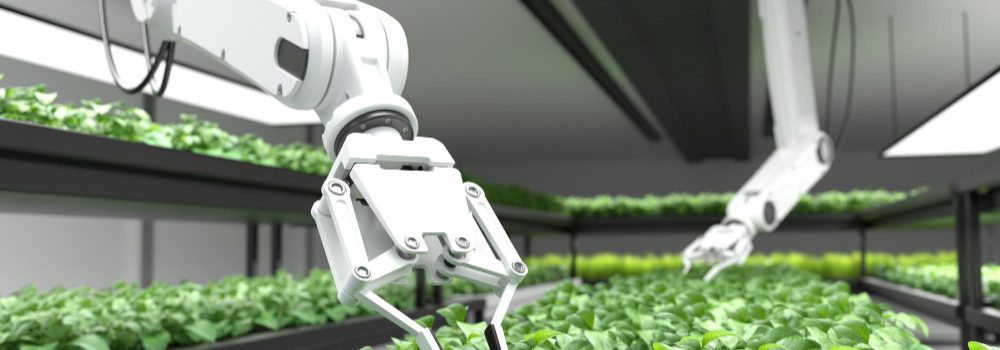BANGKOK, Aug. 31, 2021 /PRNewswire/ — Thailand is renowned as an automotive manufacturing hub, and robots are an indispensable part of that industry. With the most installations of industrial robots in ASEAN and the second-largest A&R market in the region after Singapore, Thailand is considered an important growth market for automation & robotics, according to a report by Thailand NOW.
The previous industrial revolutions saw advances in manufacturing and then computing power. The next leap forward – the Fourth Industrial Revolution or 4IR – in artificial intelligence, programming, and connectivity will finally unite manufacturing with computing power to redefine industries. The advent of smart factories – the intersection of smart devices, industrial robotics, and Internet of Things (IoT), remote sensors and controllers – is central to driving the 4IR taking place worldwide, including in Thailand. To this end, the Thai government’s development agenda, Thailand 4.0, aims to reduce inequality in the country by promoting modern, tech-driven solutions to enable access to public services even from the most remote parts of the country. Part of this policy has been prioritizing S-curve industries – a host of industries characterized by their projected growth, including next-generation automotive, smart electronics, affluent medical and wellness tourism, agriculture and biotechnology, and food for the future. All of these industries stand to benefit from A&R, ranging from iterative improvements to quantum leaps in productivity.
Now, with COVID-19 looming over daily life and a dwindling workforce due to Thailand’s aging population, having robots and automated systems that can assist healthcare workers and the country’s robust universal healthcare system will be indispensable moving forward. For instance:
Raibo-X – designed by the School of Engineering of King Mongkut’s Institute of Technology Ladkrabang, is a robot that can map out a room and completely disinfect it using UVC light. UVC light will kill any germs it comes into contact with but is too dangerous to be used by humans;
Dinsow – an award-winning robot developed by CT Asia Robotics that is fitted with a camera as well as infrared and thermal sensors. It uses AI to monitor health, have conversations, perform personal assistant duties, and run fun activities. It’s also capable of contacting family members or a hospital in case of emergencies. For people who can’t afford a home care nurse, this is a very clever solution;
AutoVacc – using a robotic arm, the “AutoVacc” system can draw 12 doses of the AstraZeneca vaccine from vials, up from the standard doses drawn manually (an increase of 20%). According to the lead researcher from Chulalongkorn University, putting this innovation into practice will not only lighten the workload of medical personnel, but increase the number of vaccinations. Currently, the machine is being trialed at the Chulalongkorn University Health Service Centre. Researchers will continue to develop the machine to be compatible with other vaccines.
Investment wise, the Board of Investment of Thailand is offering a host of generous incentives for A&R procurement and production, ranging from import duty exemptions for machinery and full waivers on corporate income tax for eight years to non-tax incentives like work permits and full foreign ownership of A&R companies and property. There has never been a better time to automate businesses or to invest in research.
One magnet for innovative work in A&R is the “NIA Deep Tech Incubation Program@EEC,” spearheaded by the state-run National Innovation Agency (NIA) in partnership with several entities to create opportunities for deep tech innovation within the government’s developmental initiative, the Eastern Economic Corridor (EEC).
Funding has also been directed to research, development, and education. As a result, Thailand sees 80,000 new science and engineering graduates trained in disciplines directly related to automation and robotics each year at world-class institutions, providing a solid foundation for skilled labor. Some of the Thai Universities that offer specific programmes on A&R engineering include Chulalongkorn University, Kasetsart University, Assumption University, King Mongkut’s University of Technology North Bangkok, King Mongkut’s University of Technology Thonburi, and King Mongkut’s University of Technology Ladkrabang. Thai students are also encouraged to compete in international robotics competitions. Many have seen success on the international stage over the past few years, including winning the Robocup Rescue competition eight times since 2006, and three first-place finishes in Robo Soccer.
It is obvious that Automation and Robotics have the potential to disrupt several industries and increase productivity by leaps and bounds, so it’s important for the private and public sectors to be forward-thinking about how they recruit, train, and educate, so they’re not left playing catch-up to a runaway train. Thailand has already boarded this train, enabling multitudes of benefits to investors, because for Thailand, investing in A&R is not just a savvy economic strategy, but an investment in Thailand’s own future.

